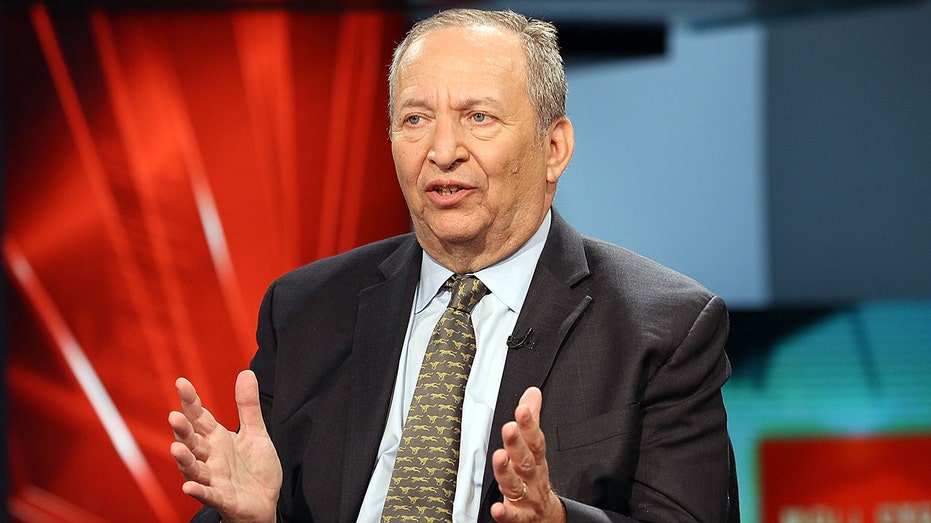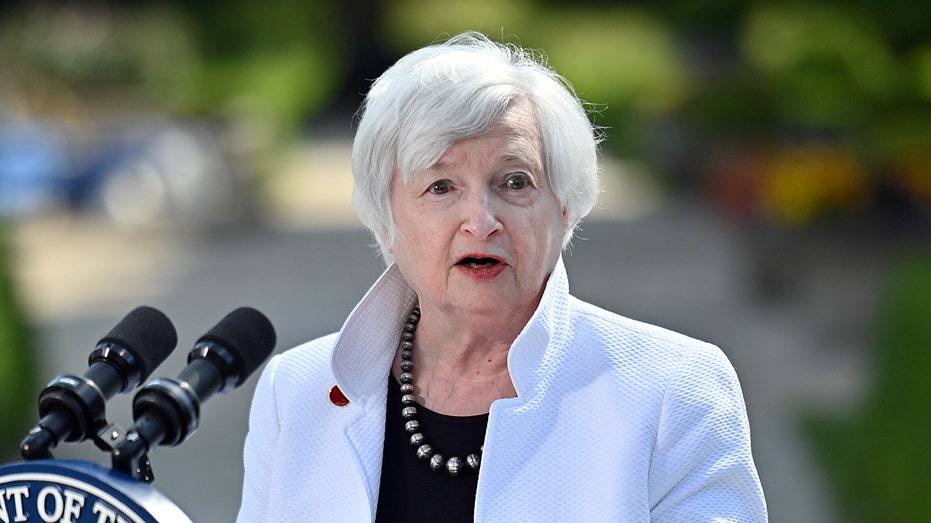Larry Summers' new warning: Fed heading for 'stagflation and recession'
Federal Reserve has been wrong on inflation for a year, Summers wrote in Washington Post
Path to tamping down inflation is raising interest rates: Market expert
Penn Mutual Asset Management portfolio manager George Cipolloni discusses the Federal Reserve’s interest rate hikes and inflation.
Former Treasury Secretary Larry Summers said Wednesday the Federal Reserve is steering the U.S. toward "stagflation" and a "major recession" – the latest of several dire predictions from the Democrat economist.
In a Washington Post op-ed, Summers slammed the Fed for numerous apparently wrong inflation predictions and argued that it "needs to take far stronger action" to fight inflation.
"The Fed’s current policy trajectory is likely to lead to stagflation, with average unemployment and inflation both averaging over 5 percent over the next few years — and ultimately to a major recession," Summers said in the Post.

Former Treasury Secretary and White House economic adviser Larry Summers is interviewed by FOX News' Maria Bartiromo at FOX Studios on May 24, 2017, in New York City. (Robin Marchant/Getty Images / Getty Images)
FEDERAL RESERVE EXPECTED TO HIKE INTEREST RATES THIS WEEK, DESPITE UKRAINE VOLATILITY
Summers, who served under former President Clinton, alleged that Federal Reserve Chairman Jerome Powell and his colleagues at the Fed have been systematically wrong on inflation for about a year.
This time last year, he said in the Post, the Fed thought inflation would stay around 2%. Last summer, the Fed said inflation was "transitory," Summers noted. And he said with the Russian war on Ukraine and continuing supply chain issues, things are unlikely to get better.
"No explanation has been offered for these rather momentous errors," Summers said in the Post. "Nor is there any suggestion that the Fed forecasting procedures or the personnel that produced them will change."
He added: "It would not be surprising if these factors added three percentage points to inflation in 2022. And with price increases outstripping wage increases, a wage-price spiral is a major risk."

In this March 3, 2020, file photo, Federal Reserve Chair Jerome Powell speaks during a news conference to discuss an announcement from the Federal Open Market Committee in Washington. The Federal Reserve is expected to raise interest rates Wednesday. (AP Photo/Jacquelyn Martin / AP Newsroom)
WHAT DOES A FEDERAL RESERVE INTEREST RATE HIKE MEAN FOR MAIN STREET?
Summers called for the Fed to refocus on reducing inflation immediately. That would mean accepting an increase in the unemployment rate and increasing interest rates by even more than a quarter-point at a time, Summers wrote in the Post.
It would also mean, Summers wrote in the Washington Post, the Fed abandoning its controversial efforts on "social justice and environmental protection."
Wednesday's missive is one of several recent warnings from Summers. In December, he argued the Fed's planned rate hikes wouldn't return monetary policy to a "normal posture" – even before the Russia-Ukraine war.
In November, Summers said on CNN inflation could last at least six to nine months, and "could well last longer."

U.S. Treasury Secretary Janet Yellen speaks during a news conference after attending the G7 finance ministers meeting, at Winfield House in London, England, June 5, 2021. Yellen and other Biden administration officials downplayed the risk of inflatio (Justin Tallis/Pool via REUTERS / Reuters Photos)
In October, Summers lambasted Treasury Secretary Janet Yellen for predictions that inflation would ease.
Summers' op-ed comes as the Federal Reserve is expected to meet Wednesday and raise interest rates for the first time in three years.
GET FOX BUSINESS ON THE GO BY CLICKING HERE
The U.S. central bank is expected to raise its benchmark federal funds rate by at least a quarter of a percentage point at the end of its two-day policy-setting meeting on Wednesday. Investors will also be closely watching new projections showing how fast Fed officials believe they need to raise rates this year to prevent soaring inflation from becoming entrenched.
In December, most officials predicted that rates would hover around 2.10% by the end of 2024.
The meeting comes one week after the Labor Department said the consumer price index rose 7.9% in February from the previous year, marking the fastest increase since January 1982, when inflation hit 8.4%. The CPI – which measures a bevy of goods ranging from gasoline to health care – rose 0.8% from January.
FOX Business' Suzanne O'Halloran and Megan Henney contributed to this report.





















